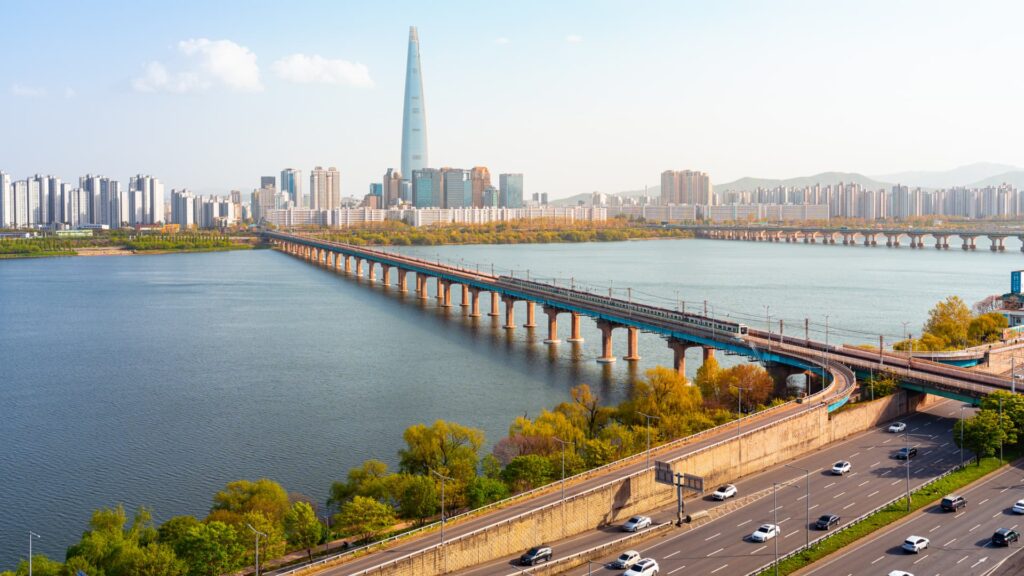Gyeonggi Province Bridge Over River With Buildings Against Sky, South Korea
Jackyenjoyphotography | Moment | Getty Images
Asia-Pacific markets traded mixed Monday as investors assessed U.S. President Donald Trump’s postponement of 50% tariffs on European Union imports.
South Korea’s Kospi index advanced 2.02% to close at 2,644.40, its highest level since Feb. 24, while the small-cap Kosdaq gained 1.3% to 725.27.
In Japan, benchmark Nikkei 225 ended the day 1% higher at 37,531.53 while the broader Topix index added 0.6% to 2,751.91.
Mainland China’s CSI 300 index lost 0.57% to end the day at 3,860.11, while Hong Kong’s Hang Seng Index fell 1.35% to 23,282.33.
India’s benchmark Nifty 50 moved up 0.53% while the BSE Sensex rose 0.55% as at 2.04 p.m. Indian Standard Time.
Over in Australia, the benchmark S&P/ASX 200 ended the day flat at 8,361.
U.S. futures ticked up in early Asia trade. U.S. markets will be closed on Monday for Memorial Day.
All three key benchmarks on Wall Street declined in last Friday’s session following Trump’s tariff threats on tech giant Apple as well as the European Union. The broad-based S&P 500 shed 0.67% to end the session at 5,802.82, while the Nasdaq Composite dropped 1% and settled at 18,737.21. The Dow Jones Industrial Average lost 256.02 points, or 0.61%, to close at 41,603.07.
Trump’s fresh tariff threats have rattled markets “after a period of relative calm, during which markets had priced in a more constructive outlook for trade negotiations,” Mathieu Racheter, head of equity strategy research at Julius Baer wrote in a Monday note.
Looking ahead, he notes that the wide range of potential outcomes, as well as the elevated policy uncertainty make diversification across regions “increasingly prudent.”
“We continue to advocate for a diversified approach across regions, with a particular focus on markets where valuations are more grounded and earnings expectations remain realistic,” Racheter added.
— CNBC’s John Melloy and Lisa Kailai Han contributed to this report.

